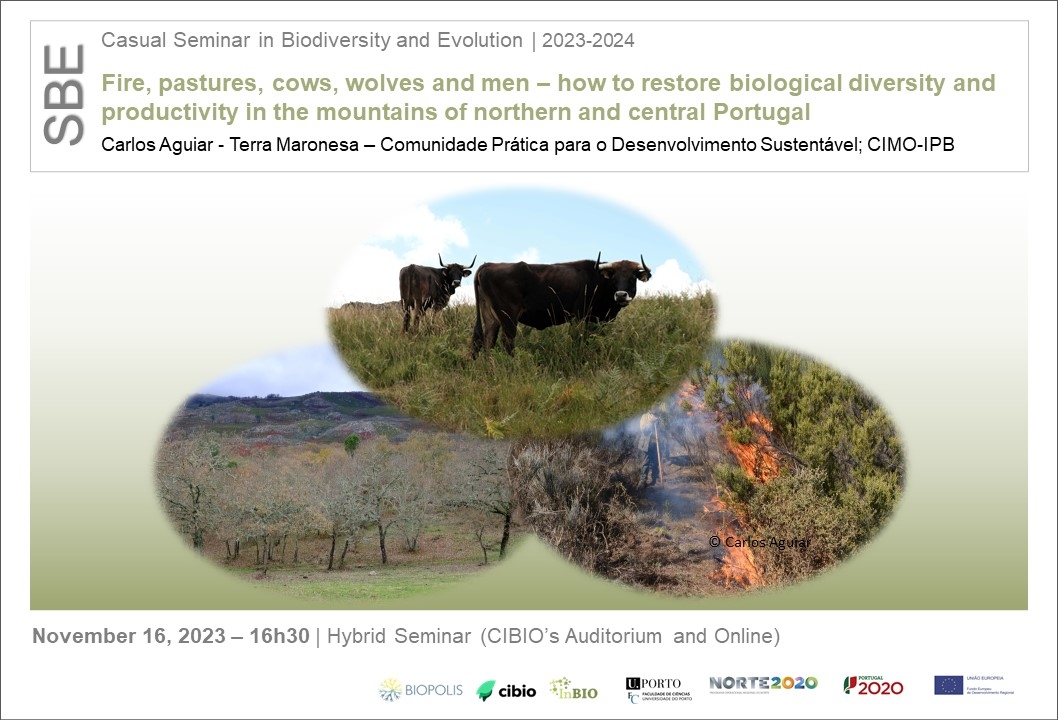Fire, pastures, cows, wolves and men – how to restore biological diversity and productivity in the mountains of northern and central Portugal
16 Nov 2023 - Carlos Aguiar - Terra Maronesa – Comunidade Prática para o Desenvolvimento Sustentável; CIMO-IPB | 16h30 | Hybrid Seminar

CASUAL SEMINAR IN BIODIVERSITY AND EVOLUTION
Defined as territories above 700 m (supratemperate and supra,editerranean vegetation stages), mountains occupy around 11% of the surface of mainland Portugal. A favorable water balance, slope and altitudinal compression of the vegetation stages favored the development of complex organic agricultural systems with a high capacity to sustain human populations (in the Iberian context). Traditional mountain farming systems included a private space largely dedicated to cereal farming and forage production, and a vast area of communal property (baldios). The commons played a key role in feeding domestic ruminant herds and restoring land fertility in private areas.
Protectionist policies on cereal prices, public afforestation of the commons and the persecution of pastoral fire had a huge impact on the fertility of the "baldios” and accelerated agricultural abandonment. On the other hand, agronomic science, the mechanization of agriculture and commercial integration increased the absolute advantages of the lowlands compared to the mountains. The resulting agricultural abandonment profoundly altered the disturbance regime of mountain ecosystems:
pastoral fire, herbivory and soil preparation associated with agricultural crops gave way to a high intensity fire regime with short recurrence cycles. Inevitably, the mountain landscape became monotonous (habitat diversity decreased), primary productivity fell and the carbon stock sequestered in the soil declined.
The LIFE Maronesa project aims to diversify and reduce the intensity of disturbance regimes in mountain landscapes through the integration of extensive pastoralism (with a significant set of technical innovations) with prescribed fire and, in this way, the output of ecosystem services (refuge diversity included) with and without market value. The first three years of the project show that this is the case.
Doctorate in agronomic engineering from the Instituto Superior de Agronomia (UL). He is a coordinating professor at the Bragança School of Agriculture. He has been researching and publishing on the flora and vegetation of the Portuguese mainland and islands, especially focusing in pasture and grazing ecology and the history of agronomy for over thirty years. He is the author of three botanical textbooks recently published by the Lisbon City Council-National Mint Press. He has worked as a co-operating agronomist in Guinea Bissau and Angola. He is currently the scientific director of Terra Maronesa, a practical rural development organisation focused on the extensification of animal production and the restoration of mountain ecosystems.
[Host: Carlos Vila-Viçosa, Predicting and Managing Ecological Change - ECOCHANGE]